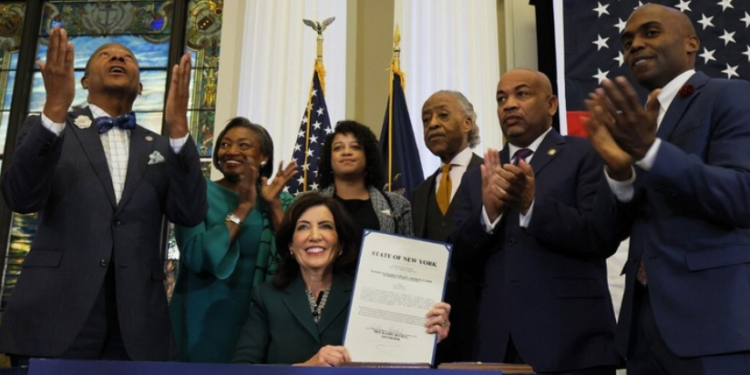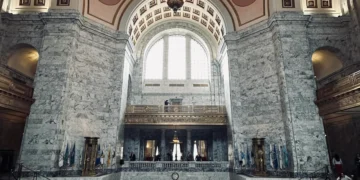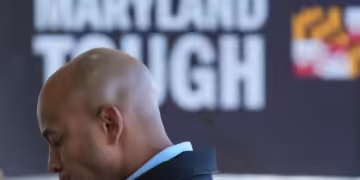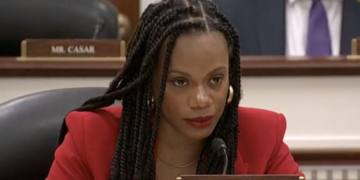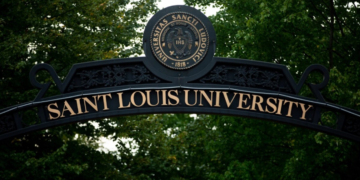New York Governor Kathy Hochul (center) signs a bill creating the state’s reparations commission. © MICHAEL M. SANTIAGO / GETTY IMAGES NORTH AMERICA / GETTY IMAGES VIA AFP
Sep 12, 2024 Story by: Editor
Nine commissioners are set to meet next week to begin an 18-month study examining potential reparations for the descendants of enslaved people, focusing on New York’s involvement in the slave trade and its long-term impacts.
The state’s Community Commission on Reparations Remedies will convene on July 30 at the state Capitol in Albany. This first meeting will lay out the group’s plan, which will extend over the next year and a half, culminating in a final report to be presented to the Legislature by the end of 2025.
Although slavery was abolished in New York in 1827, the state continued to support slave owners in other parts of the country for many years. The commission, appointed by Gov. Kathy Hochul, Senate Majority Leader Andrea Stewart-Cousins, and Assembly Speaker Carl Heastie, includes experts from historically Black colleges and universities, civil rights advocates, faith leaders, and specialists in poverty.
“They all have a unique expertise, which is very exciting to see,” Assemblywoman Michaelle Solages said on Thursday. “They come from different lenses—whether it’s public, private, or academia—they all bring a unique perspective to the table.”
Several commissioners were unavailable for comment or did not respond to interview requests on Thursday. The commission does not have a fixed schedule for how frequently they will meet or where meetings will take place.
Solages, who sponsored the bill creating the commission, saw it signed into law by Gov. Hochul last December. This year’s state budget allocated $5 million to fund the study, which will focus on three historical periods: slavery, segregation and Jim Crow, and ongoing racism.
The commissioners will work on a volunteer basis and will not receive compensation for their time, though they will be reimbursed for travel related to hearings or meetings. The study will explore how to address income inequality among Black New Yorkers, which stems from slavery, redlining, and mass incarceration. Potential forms of reparations will be considered, including but not limited to financial compensation.
Solages emphasized that the commission will help initiate the healing process for Black communities that have been historically marginalized by social and political systems.
“I believe they’re going to come up with a report that really highlights what we can do to begin this healing process and dismantle these systems that were created to suppress individuals in New York state,” Solages said. “Whether it’s redlining, unfair housing policies, or economic practices, there are systems today that need to be dismantled to ensure an equitable and just New York.”
The final report, once delivered, is expected to shape future legislation. However, earlier this year, discussions at a public forum on reparations grew heated as attendees debated who should be eligible for reparations. Some argued that only direct descendants of enslaved people brought to the U.S. in the 18th century should qualify, excluding later immigrants.
Solages, who also chairs the Black Puerto Rican Hispanic and Asian Legislative Caucus, acknowledged these challenges but stressed the importance of the commission in facilitating these difficult conversations. “We’ve been talking about centuries of disenfranchisement of Black Americans, so when we convene, it’s going to be historic,” she said. “This is a reflection point to show that we are not bound by our past, but focused on our future.”
New York’s commission is the third such task force in the nation, following similar efforts in California and Boston. California’s task force estimated the cost of reparations to be around $500 billion. Source: Spectrum News 1


